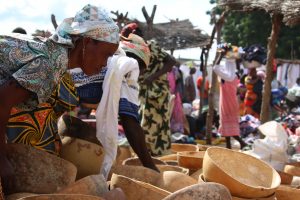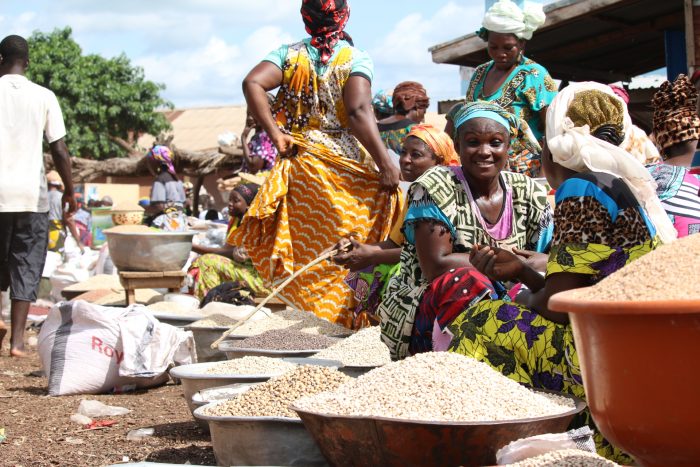They say ask and you shall receive. In Ghana, it’s more ask, then ask again, and again, then you shall receive. Recently, I found myself wandering through a market with the president of the Kumbungu 4-H club searching for a jerry can to convert into a nursery. If you don’t know, a jerry can is a small rectangular container used for transporting water from boreholes, reservoirs or tanks to your house. Cutting them in half allows you to have two soil containers perfect for nursing seeds of any type.
“Peter, come, this lady said to go to this lady and we will get the jerry can,” said Salim, the president.
I thought, “Great, that wasn’t so hard.”
Little did I know we would repeat that process about 15 more times. After about an hour or two of wandering through the crowded market labyrinth, we finally found what we were looking for. This process isn’t unique to the market in Kumbungu. Completing any task in Ghana requires asking person after person before finally finding a piece of information or a certain item. I like to call this the Ghana Network. Unlike Facebook, Twitter, and Instagram, it is not an instantaneous connection. The Ghana Network is a daily system that never stops operating for its users. It’s all about writing multiple letters to formalize a meeting request, or taking one taxi just to get to another that will drive you to your final destination, all while picking up passengers along the way. Efficiency isn’t exactly a key virtue of the Ghana Network, unlike its online counterparts. And in fact, I’ve found this to be one of the most frustrating parts of living here. But taking a different perspective of the Ghana Network can reveal some unlikely life lessons that the social network falls short of.
 The first is patience. It seems now days everything can be achieved by the push of a button, or at least we think it can. That’s definitely not the case with the Ghana Network. If you want something done, it probably requires some travel through the dry season heat and a lot of sweet talking. Some may see this as a colossal waste of time, and whether it is or not, you will learn to be patient with the process and probably appreciate the end result more because of it.
The first is patience. It seems now days everything can be achieved by the push of a button, or at least we think it can. That’s definitely not the case with the Ghana Network. If you want something done, it probably requires some travel through the dry season heat and a lot of sweet talking. Some may see this as a colossal waste of time, and whether it is or not, you will learn to be patient with the process and probably appreciate the end result more because of it.
The second is persistence. Calvin Coolidge once said, “Nothing in the world can take the place of persistence. Talent will not: nothing is more common than unsuccessful men with talent. Genius will not; unrewarding genius is almost a proverb. Education will not: the world is full of educated derelicts. Persistence and determination alone are omnipotent.” In Ghana, You have to be willing to try and fail multiple times until you finally see success.
Thirdly, you’ll make some real friends along the way. What I didn’t mention from the story in the beginning was I was able to practice my Dagbani language skills with multiple willing conversation partners, I met Salim’s aunt and classmates, and became better friends with Salim himself. All of our days were brightened by the conversation and the connections we built. Unfortunately, that kind of interaction just isn’t possible with the social network. There are so many beautiful things that the developed world possesses. Our lives have been made more convenient by technology and innovation, but we cannot forget the values that were born from living a simpler life.
I have found frustration and beauty in the Ghana Network and taken lessons from both sides. But the concept and values can be applied anywhere. When I get home, I plan to take the extra time to do my shopping in person and not just online. I will do my best to have twice as much face to face time, rather than Facebook time. It doesn’t take living in Ghana to rediscover this lifestyle, one can simply start tomorrow wherever he or she lives at the moment. So go out and ask (a few times) and you shall receive.
Peter Cohen is an Agricultural Communications graduate from Oklahoma State University. Before becoming an AgriCorps Fellow, Peter traveled to Costa Rica and Ethiopia to learn about international agriculture.


